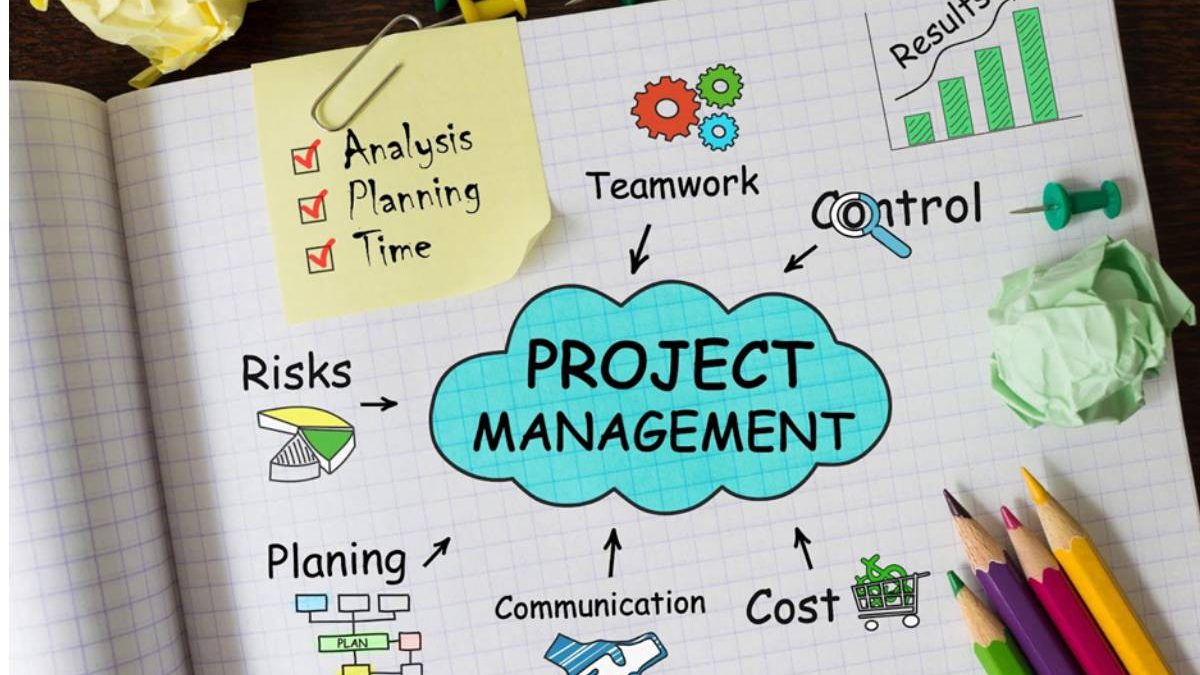Successful Project management is a crucial skill in any professional’s toolkit, but it seems intimidating for most people. If you’re new to this, you might be feeling the pressure of being given responsibility for the success of your team’s significant initiatives, and it may seem like there are a million things to learn.
You may even be considering project management software comparison to identify the best tool for your teammates during the project. While you’re doing that, here’s an overview of the basic things you need to know to manage a project successfully:

Table of Contents
1. Understand The Scope Of The Project
You need to tick the essential boxes to complete your project successfully. What is meant by ‘scope of the project’? A good understanding of the scope helps you set goals and objectives for your projects. It serves as your baseline to effectively outline the actions needed to take to commence the project. Notably, by doing this, you’ll be able to take advantage of opportunities to grow as a professional and gain new skill sets. In addition, you’ll learn how to balance multiple tasks at once without losing sight of what needs to complete next.
2. Prioritize Communication
For successful project management, it’s crucial to prioritize communication. The project manager must make sure that all stakeholders are on the same page and informed about any changes to the project.
If there are any issues or concerns with the project, you should address them immediately before they become more significant problems. You should use tools such as emails and online chat apps to do this. You can also hold meetings with your team members to discuss the project’s progress.
Finally, if something goes wrong with the project during its execution phase (e.g., if there’s a delay), you should inform all stakeholders immediately. That way, they can be aware of what’s going on and make any changes themselves if necessary.
3. Do In-depth Planning
Planning is one of the most critical stages of effectively managing a project. Remember that even if you have a clear vision of what needs to complete, all stakeholders should also be aware of every planning phase. Furthermore, in-depth planning lets you make clear and wise decisions to manage every aspect efficiently, such as whether to outsource your IT services or social media marketing if it’s taking too much of your team’s time.
Planning also includes defining roles, responsibilities, and skills needed for each task. It also integrates estimating how long it will take to complete each task. Lastly, it involves creating timelines and allocating budgets for the work required on your project.
4. Identify Risk And Strategize How To Mitigate Them
Risk management is a structured, proactive way of identifying and managing risks. The first step in risk management is recognizing the potential dangers impacting your project. Once you’ve identified them all, you can prioritize them based on their likelihood and significance.
After that, you need to develop strategies to mitigate those risks if they become a reality. If some of your mitigation strategies don’t work as expected, preparing for that scenario by having another contingency plan in place is essential.
5. Know What To Prioritize
You have a lot of stuff to do. And you can’t do it all at once. So, how do you decide what to prioritize? The first step is determining which tasks will bring value—those tasks should be your top priorities.
For example, if you’re working on a crucial marketing campaign and doing some HR paperwork, you should prioritize the marketing campaign because its results can increase your revenue. Consequently, if you have conflicting projects with close deadlines, it would be essential to use task management tools to help with prioritization.
6. Plan For Budget And Resource Allocation
One of the essential aspects of effectively managing a project is planning for budget and resource allocation. Every project has a specific cost, so you need to budget it accordingly. There are several ways to do this, and some are easier than others, but all require thoughtful deliberation and consideration.
To plan for resource allocation, first determine what resources will need for your project. It could include people, tools and equipment, raw materials or manufactured goods, working space, and marketing data.
Once you’ve determined what resources your project requires, consider how much it will cost in terms of money or time invested in obtaining those resources. It’s essential to create a realistic budget when planning to avoid false expectations later.
7. Learn To Utilize Team Weaknesses And Strengths
Learning to utilize team weaknesses and strengths is crucial for any project manager. The most effective way of leveraging a team’s weaknesses is by encouraging them to talk about their strengths so that you can find ways of minimizing the impact of their weaknesses on the project
If you’re managing a remote team, communication is critical to building an efficient and effective relationship with your employees. That’s why it’s essential to learn how to communicate effectively with all types of people before taking on this role.
8. Utilize The Right Project Management Tools
When it comes to your business, a few different types of software can help you manage your projects and make them more efficient. It’s important to select the software based on your project’s activities and tasks, such as HR software that helps with your workforce management.
Project management software usually has an easy-to-use interface, compatibility with other systems or applications, and accessibility across different devices.
Conclusion
In the end, project management is all about planning and communicating. You have to set goals, plan a path to reach those goals, and collaborate with your team members on ways to attain those goals. If you’re looking for a way to make your business more successful, project management is one of the best places to start. By implementing the tips and tricks mentioned above, you can manage projects more efficiently, reduce costs, and improve your bottom line.

